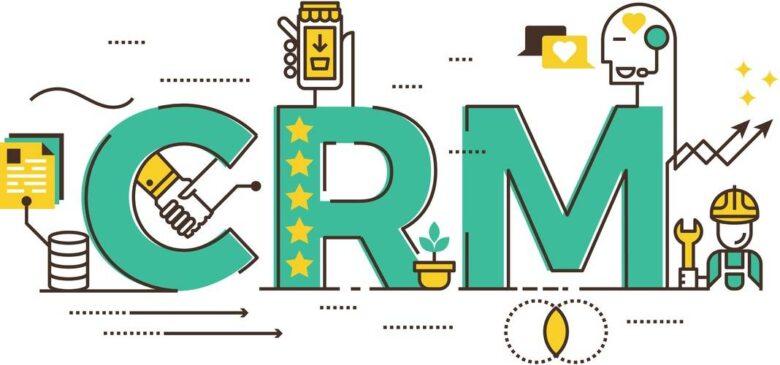Customer Relationship Management (CRM) in a very broad way can be defined as the efforts made towards creating, developing, and maintaining a healthy and long-lasting relationship with the customers using technology. This tutorial is an introductory guide to CRM that touches upon various topics such as understanding 21st century customers and managing them, building value for them, CRM software, and future trends in CRM.
Here are some of the important ingredients of Customer Relationship Management −
Analytics − Analytics is the process of studying, handling, and representing data in various graphical formats such as charts, tables, trends, etc., in order to observe market trends.
Business Reporting − Business Reporting includes accurate reports of sales, customer care, and marketing.
Customer Service − Customer Service involves collecting and sending the following customer-related information to the concerned department −
Personal information such as name, address, age
Previous purchase patterns.
Requirements and preferences.
Complaints and suggestions.
Human Resource Management − Human Resource Management involves employing and placing the most eligible human resource at a required place in the business.
Lead Management − Lead Management involves keeping a track of the sales leads and distribution, managing the campaigns, designing customized forms, finalizing the mailing lists, and studying the purchase patterns of the customers.
Marketing − Marketing involves forming and implementing sales strategies by studying existing and potential customers in order to sell the product.
Sales Force Automation − Sales Force Automation includes forecasting, recording sales, processing, and keeping a track of the potential interactions.
Workflow Automation − Workflow Automation involves streamlining and scheduling various processes that run in parallel. It reduces costs and time, and prevents assigning the same task to multiple employees.
How Customer Relationship Management Works
CRM is quite often misunderstood as a software package or a business tool, but essentially, it is more of a holistic approach of doing productive business. The most fundamental part of it is to gather information about the customers (mainly from the sale records) .
The business then designs campaigns for targeted customers accordingly, in order to expedite and broaden the sales. The collected information about the customer helps the customer support department of the business. Through this collected information, a business learns about customers who use are regular buyers of their products. Other CRM applications like automated applications to process customer complaints and customer service systems such as automated call centers, are the factors which make businesses successful.
How Do Businesses Benefit From CRM ?
Business organizations can achieve multiple goals by adopting CRM strategies. Improving customer service is the primary goal , which eventually increases buyer’s satisfaction and confidence in their products. The revenue is increased when the right products are advertised to the right people at the right time. This is happens when a company knows what it’s customers want, or the other way around; when the company helps it’s buyers realize what they need to buy. This all is possible by using various CRM methods. Many successful companies make the use of CRM so well that they keep their customers longing for it’s upcoming products.
List of CRM Cloud Services
Below-listed cloud services are offered by the Salesforce CRM:
A). Sales Cloud
Through this platform, the organizations can easily manage their sales, marketing, and customer support operations. For any of the organizations either for a B2C or B2B, the sales team of your organization may need such a platform that can help them to manage the sales operations and the Sales cloud is that one.
B). Marketing Cloud
Salesforce provides one of the most powerful digital marketing platforms. Marketers can use Salesforce marketing cloud to manage their digital marketing campaigns, in managing their customer journey, social media, web personalization, content creation, data analytics, and content management.
C). Service Cloud
The service platform of Salesforce is provided for customer service and support teams. The features that are offered for service management are case tracking, social networking plug-in for market analysis and managing conversation between them. In this way, your service agents can solve the customer queries faster and even the customers can solve it by themselves.
D). Community Cloud
If you want to ease the communication among your employees, customers, and partners then the Salesforce community cloud can help you. They can exchange images, files and data in the real-time environment.
E). Commerce Cloud
Irrespective of the customer location, the commerce cloud helps the organizations in providing seamless customer experience and service. Through data integration feature customers can also get a better experience. Salesforce commerce cloud helps the organizations in providing better customer experience and positive feedback.
F). Analytics Cloud CRM
The analytics platform of Salesforce provides a business intelligence platform with which they can work with large data files, charts, graphs, and even pictorial data representation that can help them in providing a better customer experience. Analytics cloud helps the managers in decision making and provides them with analytics details to make better decisions.
G). App Cloud
To develop the apps that are customized for the Salesforce platform users can use the Salesforce App Cloud. It has a collection of development tools that can be utilized to create customized apps. Some of the App cloud tools are:
- App Exchange: It is an application marketplace for third-party apps that can run on Force.com platform
- com: It allows the developers and admin to create the applications and websites into main Salesforce.com applications
- Heroku: Here the developers can use the apps and platform of their choice to develop the customized application
- Salesforce Sandbox: It allows the developers to test their ideas in an isolated and safe environment
- Salesforce Thunder: Users can use it to perform personalized actions and analyze events and actions of the user.
Read also:What is Agile Software Development

Leave a Reply